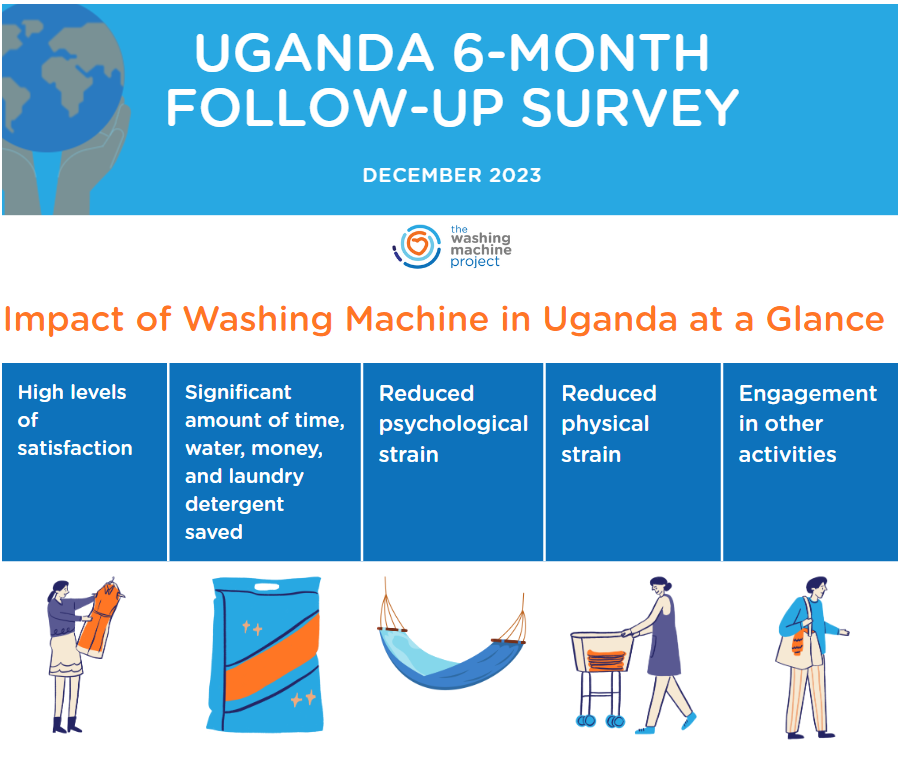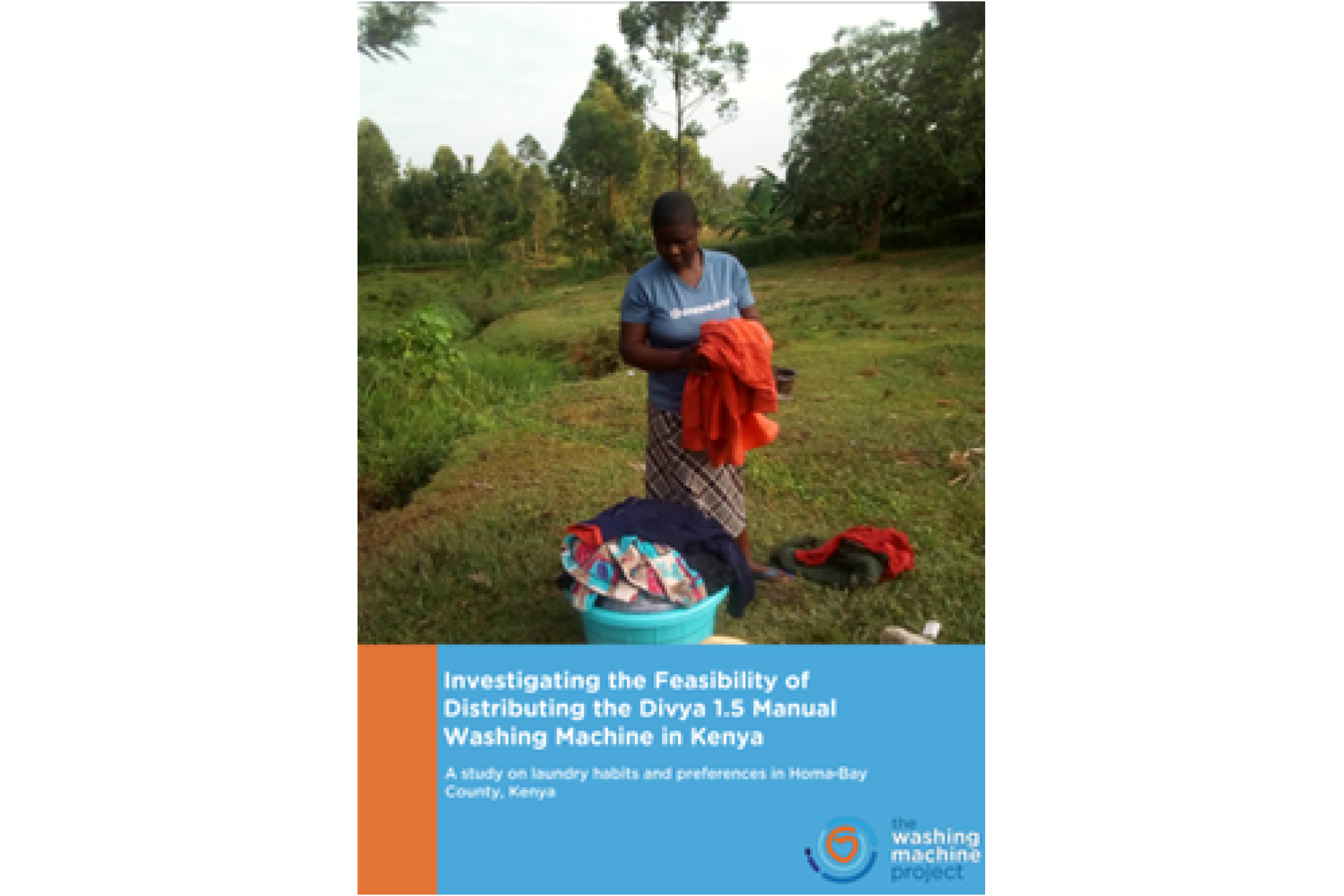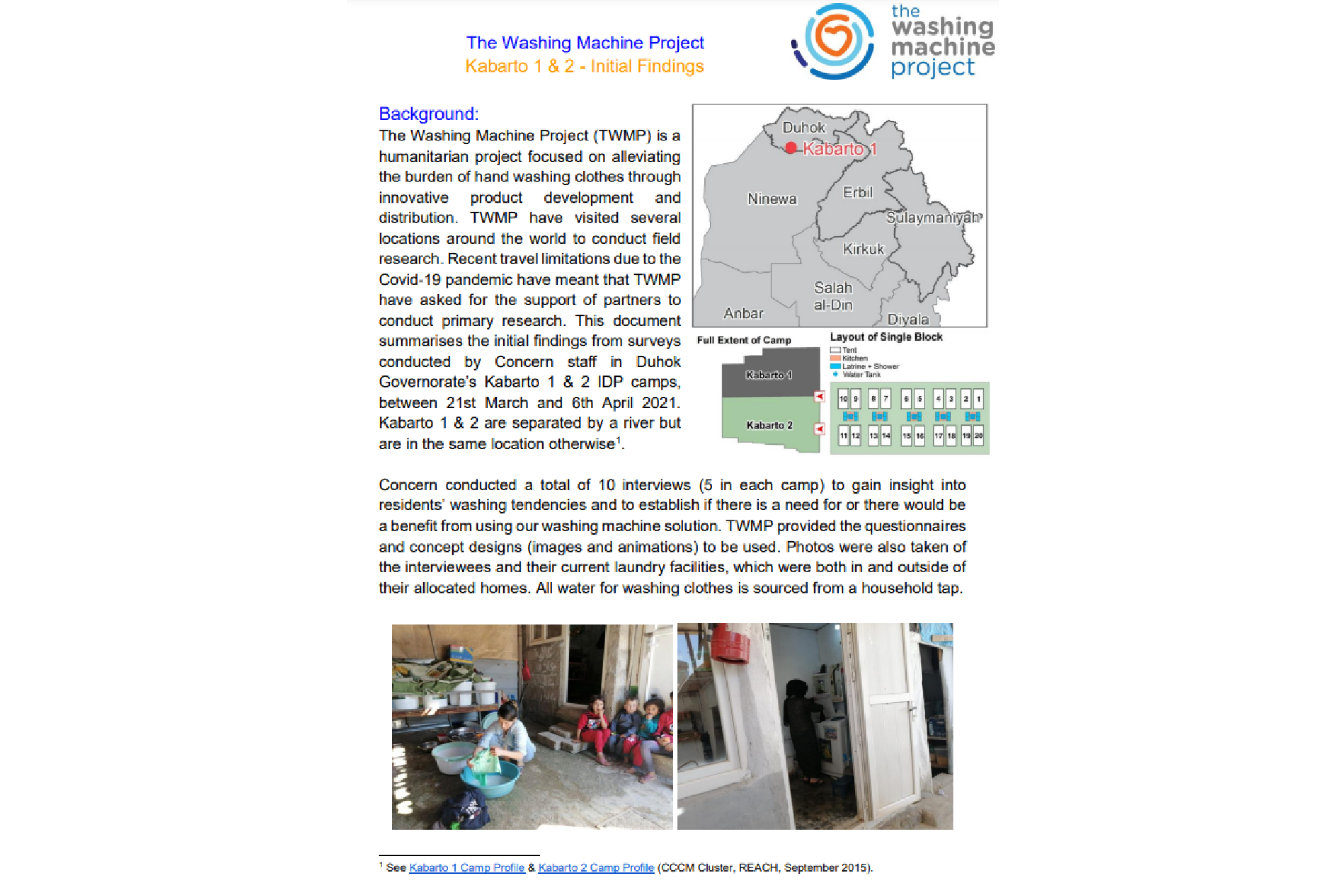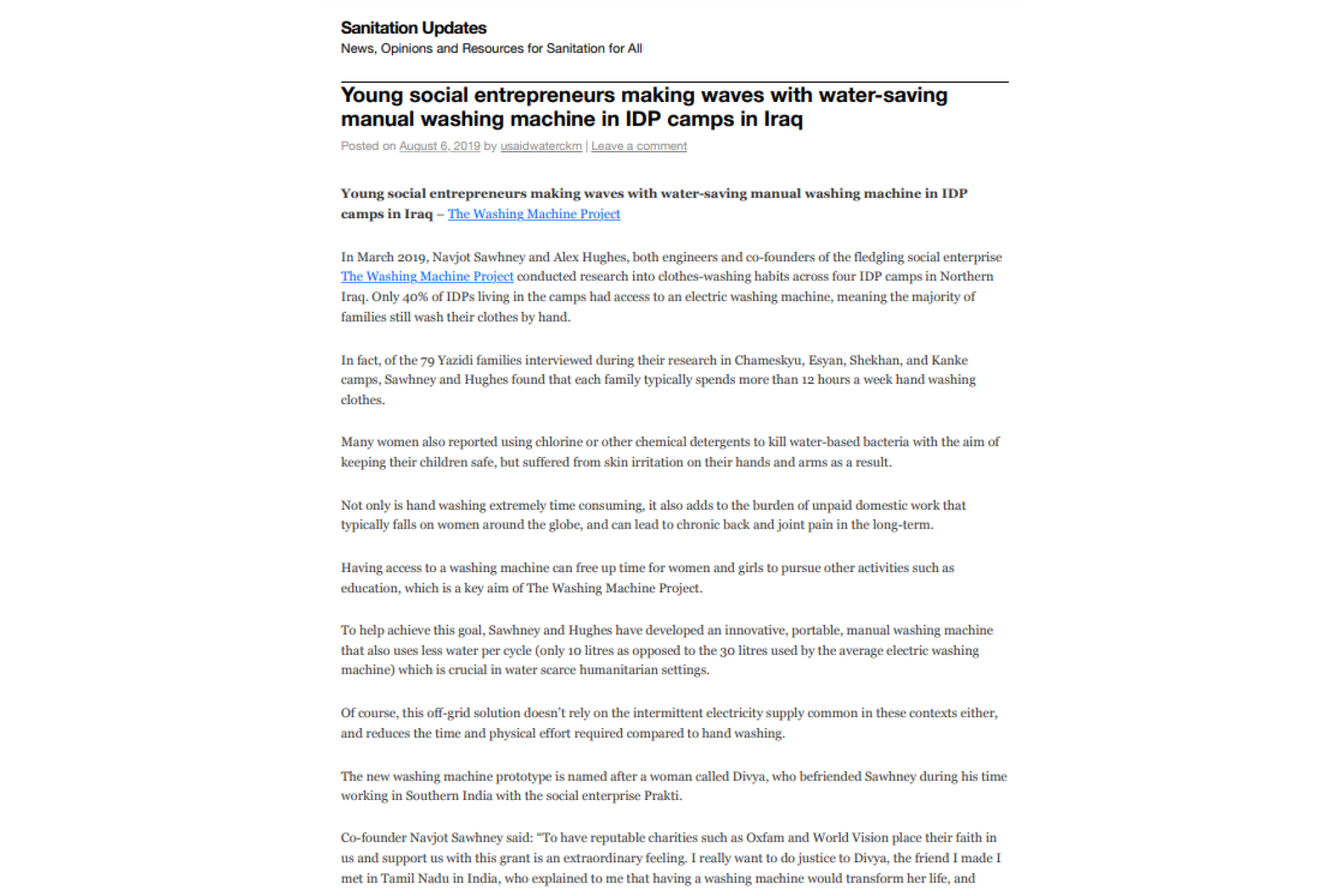
How we’re making a difference.

Kampala, Uganda - Midline Report
In Uganda, TWMP has implemented a programme focussed on the distribution of 16 washing machines in and around Kampala both in community settings as well as individual households. The washing machines were distributed in March 2024. As part of the implementation of this programme, TWMP conducted a midline assessment by surveying 42 users who received a washing machine to understand their current washing practices with the washing machine. The main objective of this report is to present an overview of the findings of this midline assessment.

Kampala, Uganda - Baseline Report 2024
In Uganda, following the initial distribution of two test washing machines into a household and a community centre, TWMP has implemented a programme focussed on the distribution of 16* more washing machines in and around Kampala both in community settings as well as individual households. The washing machines were distributed in March 2024. As part of the implementation of this programme, TWMP conducted a baseline assessment by surveying users who received a washing machine to understand their washing practices before receiving the washing machine. The main objective of this report is to present the findings of this baseline assessment.

Uganda 6-Month Follow-Up Survey
In Uganda, TWMP has initiated a pilot program for washing machines by distributing two units—one located at an ISU community centre for children with a disability and their families, and the other serving a female-headed household, comprised of 13 members. The washing machines were distributed in May and June 2023. The main objective of this report is to present the findings of a 6-month follow-up assessment conducted between the 6th of December and the 13th of December.

Investigating the Feasibility of Distributing the Divya 1.5 Manual Washing Machine in India
Unsaid domestic and care work is immensely important, underpinning all aspects of society. wellbeing and the global economy. However, it is a burden that disproportionately falls on women and girls, particularly in the Global South, with largely overlooked consequences on their lives and on gender equality as a whole! The Washing Machine Project (TWMP) is a grassroots social enterprise dedicated to empowering women by alleviating the burden of handwashing clothes, a crucial form of unpaid labour. By providing displaced and low-income communities with an accessible, off-grid washing solution, we aim to empower women with the time to take charge of their lives.
In partnership with Sun King, we have conducted research into washing practices in India. This study aims to investigate the feasibility of distributing our manual washing machines in India, as well as to recognise and value the burden that this crucial form of unpaid care workplaces on women all over the world.

Investigating the Feasibility of Distributing the Divya 1.5 Manual Washing Machine in Kenya
Unpaid domestic and care work is immensely important, underpinning all aspects Of society, well-being and the global economy. However, it is a burden that disproportionately falls on women and girls, particularly in the Global South, with largely overlooked consequences on their lives and on gender equality as a whole. Despite some progress in Kenya, gender inequality is persistent, particularly in relation to the burden of unpaid domestic and care work. Addressing this complex issue is paramount in order for gender equality to be realised in Kenya.

Uganda Report 2021
Our previous research around the world has revealed the adverse issues associated with hand washing clothes. This report contributes to this understanding, by presenting research concerning the Ugandan context, and has implications for research further afield. Washing practices and attitudes are explored, including the clothes washing weight, the position taken when clothes washing, and the perceived importance of, different aspects of the clothes washing process, and other activities. Other factors, including unpaid care work, water, sanitation, and hygiene, and electricity, are also reviewed. This is to ultimately determine whether an innovative, practical alternative, in the form a manually powered washing machine, is suitable for the Ugandan context.
It was concluded that a manually powered washing machine is suitable – that it will meet needs and be of benefit. Below details why, based on a quick summary of the data findings.

2021 Kabarto 1 & 2 Report - Initial Findings
TWMP have visited several locations around the world to conduct field research. Recent travel limitations due to the Covid-19 pandemic have meant that TWMP have asked for the support of partners to conduct primary research. This document summarises the initial findings from surveys conducted by Concern staff in Duhok Governorate’s Kabarto 1 & 2 IDP camps, between 21st March and 6th April 2021. Kabarto 1 & 2 are separated by a river but are in the same location otherwise.

US AID's Sanitation Blog Covers The Washing Machine Project
Young social entrepreneurs making waves with water-saving manual washing machine in IDP camps in Iraq “To have reputable charities such as Oxfam and World Vision place their faith in us and support us with this grant is an extraordinary feeling. I really want to do justice to Divya, the friend I made I met in Tamil Nadu in India, who explained to me that having a washing machine would transform her life, and inspired us to create one that saves time and alleviates the physical burden of hand washing.” - Navjot Sawhney, Founder

2019 Iraq Report
A study of clothes washing habits in Iraqi Kurdistan and the suitability of a manually powered, portable washing machine as a means of improving quality of life in IDP/Refugee camps.
